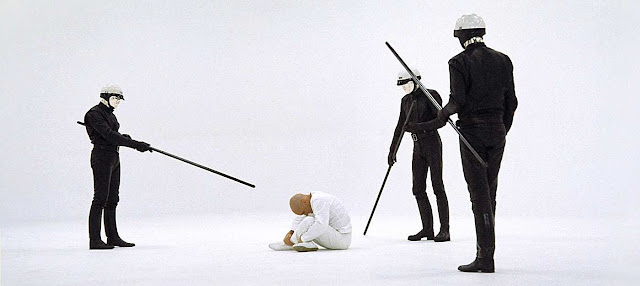Rebecca Cantrell: I love meeting readers, although I once had a reader come up to me and say: "Your mystery is so good! I bet you could even write a real book!"
Annie Reed: The challenges for me pretty much all stem from having to step inside the head of a truly bad person in order to write from their point of view. Basically putting myself inside the head of a psychopath to write from that person's perspective. Oogy stuff. The successes come from writing something that forces me to write outside my normal comfort zone.
Successes are few. Sales have never been big. A little recognition in the media at the start of my career was nice. The awards are certainly nice. Being recognized by my peers. My writing has been awarded a SHAMUS Award, a DERRINGER Award, the UNITED KINGDOM SHORT STORY PRIZE. Two of my mystery stories have appeared in the BEST AMERICAN MYSTERY STORIES and my novel JOHN RAVEN BEAU was named Police Book of the Year by police-writers.com.
Dean Wesley Smith: I suppose that at first I thought it would be too complex for me to figure out. Turns out, for me and how my mind works with puzzles, they are the easiest books to write.
Melissa Yi: My definition of success keeps changing.
First, I desperately wanted a professional publication, because it meant that I was a “real writer” in my mind. I was good enough that someone wanted to pay me for my words.
Then I was anxious to sell repeatedly, for more money, in more magazines.
My next skill leap was jumping from short stories to novels. I had to talk myself into it by saying, “Look, novels are just connected short stories … “
So then the next rung was selling my novels and making some money.
 In 2010, my collection of light-hearted medical essays, The Most Unfeeling Doctor in the World and Other True Tales From the Emergency Room, hit the Amazon bestseller lists. For the first time in my life, I was reaching lots of readers, and money hit so quickly that I ended up with a bunch of cheques in British pounds that I didn’t even have a bank account to accommodate.
In 2010, my collection of light-hearted medical essays, The Most Unfeeling Doctor in the World and Other True Tales From the Emergency Room, hit the Amazon bestseller lists. For the first time in my life, I was reaching lots of readers, and money hit so quickly that I ended up with a bunch of cheques in British pounds that I didn’t even have a bank account to accommodate.
Now I was ringing the money bell, certainly not to the tune of six figures a month, the way some writers seemed to, but way beyond anything I’d accomplished before or since. But it didn’t make me as happy as I thought it would. My fiction wasn’t getting the same audience, and I got a lot of blowback in the form of hate mail and vigorous one-star reviews. So I made up a new definition of success: Writing connects me with people, places, and things that excite me.
You can see my evolving definition of success here, which is sort of a writing bucket list. When I look back at it, I realize that in 2010, writing was giving me money, but no fun. Once the critics came out with their knives, I froze up a bit at writing non-fiction.
Since then, I’ve made a point of having fun. Or at least trying new things. Probably the most bizarre thing I did was a two-day Ido Portal handstand workshop when I’ve got minimal upper body strength and rarely hang out upside down. But I also went to Los Angeles twice as a finalist for the Roswell Award, and I headed down to New York and Boston for the Jewish Noir book tour. All awesome.
However, now that I’ve had some fun and can no longer crack Amazon’s algorithms, I’d like to make a living with my writing. Or, as I put it on my bucket list, I want to be able to say, I could quit my day job and write full-time, whether or not I choose to do this.
 And for success, I’m thrilled to report that Canada’s national book show, CBC Radio’s The Next Chapter, chose Human Remains as one of the great summer must-reads of 2017!
And for success, I’m thrilled to report that Canada’s national book show, CBC Radio’s The Next Chapter, chose Human Remains as one of the great summer must-reads of 2017!
(If you’d like to join the Human Remains party, the e-book's only $3.99 on all platforms. You can download it for free on Kobo with the code HRemains. This code only works on Kobo, not Amazon, and will only last until July 31st.)
Looking at my fellow writers' opinions, I see that a lot of my writing goals and dreams are very external. I don’t have a lot of control over which editors publish my work, how much money flows to me every year, or how my books are reviewed.
I should set some writing goals that I can control, like how many words I write per week, or how many stories I submit to magazines, or craft goals, like improving my setting.
What about you? How do you define writing success and/or challenges?








































